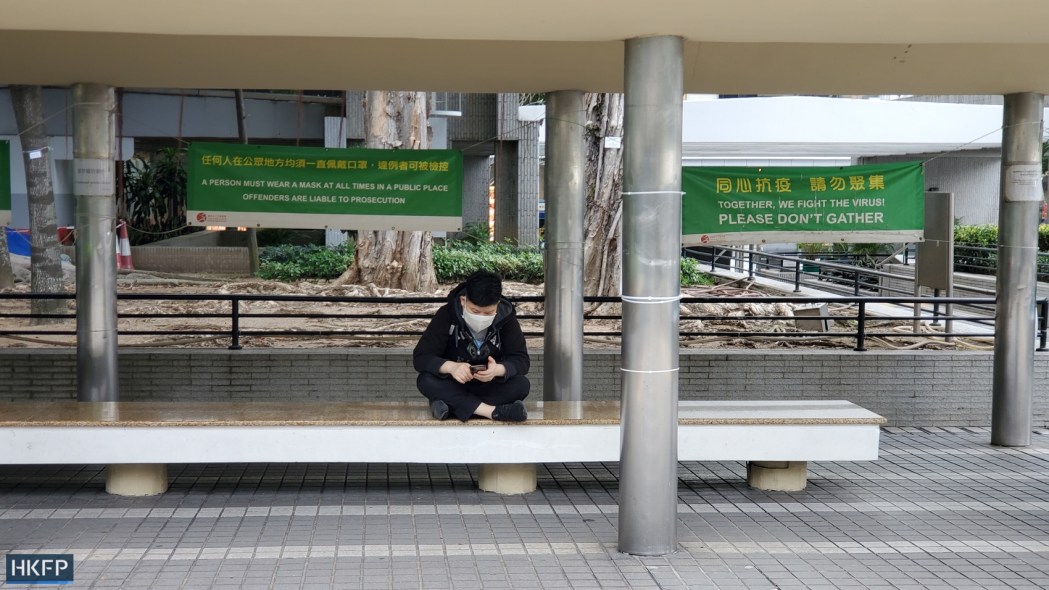The hazards of comparing statistics from different times and places are well known. But not, apparently, in Hong Kong public health circles, where Covid-19 figures are looking distinctly shaky.

In the early days of the epidemic anyone who thought they had Covid rushed immediately to the nearest doctor – or if they couldn’t afford a doctor, to the nearest Accident and Emergency Department. Doctors and hospitals were required to report cases of Covid to the authorities. So if we were told there were 1,000 new Covid cases yesterday this was probably – give or take the odd case with no symptoms and the odd false positive – the actual figure.
Over the past week or so, official daily figures have hovered around the 10,000 level for the first time since the springtime spasm when it threatened on a couple of occasions to reach 80,000. The daily figures are still duly reported by health officials, implying that no sparrow coughs without its ailment being recorded by the Centre for Health Protection. Which is, alas, not true.
I have heard of numerous friends, acquaintances, friends of friends and acquaintances of acquaintances, plus the odd relative, who have had Covid. None of them resorted to the official health care system.
The standard way of dealing with Covid, at least for otherwise healthy adults, has become a matter of self-treatment. The victim takes some pills and retires to bed, keeping as much separation from friends and family as their living arrangements allow.

Some amusement was caused on the estate where I live when the management sent round a circular saying that we had a case on the premises. Public areas would be disinfected, U-bends watered, and security staff reminded to wear face masks, sensible measures which we were urged to copy.
The funny thing about this is that we all knew about previous cases which had not become official. There was some doubt whether the latest one was our fourth or fifth case, but nobody supposed it was actually the first.
Hong Kong people are traditionally self-reliant. The consensus is now that your ordinarily healthy citizen who has had four jabs of the good stuff will either not get Covid or will get the harmless version. The ailment is no longer a public problem. We can handle it ourselves.
I am not suggesting the ratio of reported to unreported cases is as high as my local experience might suggest. Houses with multiple bedrooms offer more amateur quarantine possibilities than your standard Hong Kong flat, let alone your standard Hong Kong subdivided flat, bedspace or whatever.

Indeed the Penny’s Bay quarantine accommodation, regarded with some dread among inhabitants of comfortable upmarket homes, may well seem an attractive prospect to people whose living arrangements are more basic. They’re coming to take me away, hooray, as the old song had it.
On the other hand, though, being in quarantine implies not being at work. This is a financial problem for some people, who will no doubt be tempted to regard their minor symptoms as being no bar to attending the usual day’s toil, even if that means breathing on strangers.
My point is not that the official figure is too low. My point is that it is worthless. It could be too high, though that seems unlikely, or it could be too low. Covid has ceased to be a disease which is routinely reported, so we have no reliable way of knowing how prevalent it now is.
Yet we are still being told that if the official figure passes some threshold, up or down, there will be consequences – respectively more restrictions on gatherings and travel, or less.
Clearly it would be foolish to suppose that I am the only person who has noticed that policy is now being made on the basis of fictitious statistics. The danger is not just that erroneous fears or hopes could lead to misguided policies. The danger is that people will entirely lose faith in the government’s public health efforts.

These are already in bad odour in some quarters. They seem to be out of step with the rest of the world, bewilderingly changeable, and prone to political pollution. There is no Chinese medicine, traditional or otherwise, that has any demonstrable effect on Covid. The limits on gatherings – 500 for marathons, eight for dinners, four for political protests – make no sense. Too many top, and not-so-top, people seem to be exempt from all restrictions.
From a long-term point of view this looks worrying. We must all hope that we can trust the learned prophet who announced last week that the current epidemic will finish next summer because epidemics usually subside after three years, though one does wonder. Perhaps this one will be different?
With more certainty we can say that sooner or later there will be another epidemic. When that day comes it would be useful if Hong Kong people trusted their government.
Support HKFP | Policies & Ethics | Error/typo? | Contact Us | Newsletter | Transparency & Annual Report | Apps
| HKFP is an impartial platform & does not necessarily share the views of opinion writers or advertisers. HKFP presents a diversity of views & regularly invites figures across the political spectrum to write for us. Press freedom is guaranteed under the Basic Law, security law, Bill of Rights and Chinese constitution. Opinion pieces aim to point out errors or defects in the government, law or policies, or aim to suggest ideas or alterations via legal means without an intention of hatred, discontent or hostility against the authorities or other communities. |
Help safeguard press freedom & keep HKFP free for all readers by supporting our team

More HKFP OPINION:
HKFP has an impartial stance, transparent funding, and balanced coverage guided by an Ethics Code and Corrections Policy.
Support press freedom & help us surpass 1,000 monthly Patrons: 100% independent, governed by an ethics code & not-for-profit.










